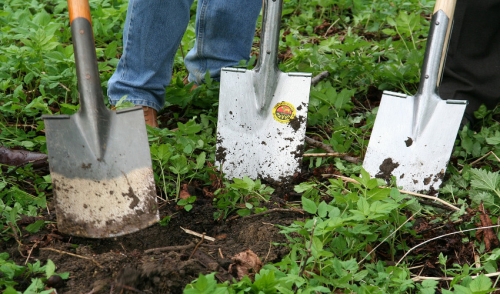
Top 10 Tips for New Gardeners
It seems everyone's into gardening, but if you're a novice (or an old green thumb) it may seem a little intimidating. So here are some suggestions to help you grow a bountiful harvest and remember...gardening is supposed to be relaxing so enjoy.
- You need the right type of gardening gear to achieve optimum results. Things you need are a soaker hose, a hoe, fertilizer, seeds, and gardening gloves. There are many more things you'll want to include as time goes on, but these will get you started.
- Start small. If you are truly unsure of how much time an effort you are willing to put into gardening, start by planting in containers or simply add a few rows to your flower garden to get your feet wet.
- Make sure to plant your new garden in a sunny area, one that receives eight hours of sunlight a day. Plant vegetables that need a bit of shade such as cucumbers and lettuce next to tall tomato plants or trellises.
- Pick up a soil pH balance testing kit at your local Home & Garden Showplace to check your garden's topsoil. This will tell you if it needs compost or new topsoil added. If your soil is in need of beefing up, add fertilizer or composte.
- Instead of trying to start your new garden with expensive seedlings, start out by planting vegetables from seeds into loose soil and follow the directions on the back of the seed package.
- Plant vegetables that will come up in succession so that you will always have something in harvest. That way your interest will be kept up from early spring to late fall. Find out the dates in advance and schedule time to plant accordingly. For an early spring harvest plant peas, spinach and radishes; for summer plant tomatoes, peppers and summer squash. To enjoy an early fall harvest plant broccoli.
- Find out which plants need special care in your climate. For example, if you have a short summer season you might have to pick your tomatoes early to ripen off the vines. This information should be considered when you plan your garden and when you buy the plants.
- Once everything is planted make sure you can spend an hour or two a week maintaining your hard work. You need to fertilize, water and thin your new vegetable garden.
- Find out how to store your vegetables to make sure you can enjoy them long after harvest.
- Make sure to keep a reference log of what worked and what needs to be improved for next spring's garden.

